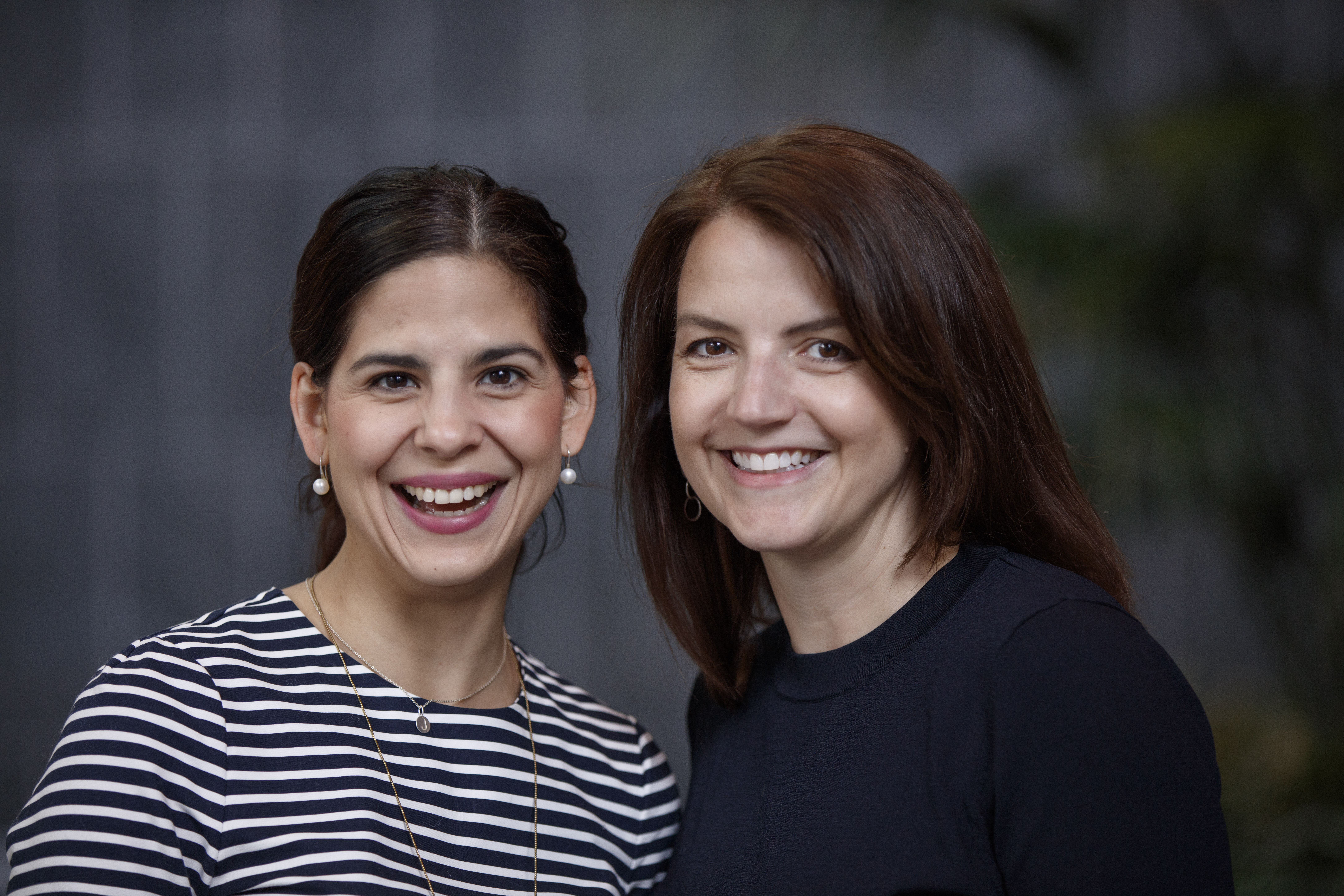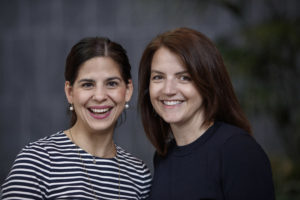Spotlight : Q&A with Karen Starns and Josefina Urzaiz
“Finding a mentor who not only understands your professional needs but also understands you as an individual, can make all the difference.”
Participating in the Global Ambassadors Program (GAP) in Charlotte in 2017, Co-founder of Hammock Boutique, Josefina Urzaiz was paired with mentor Karen Starns, who was then the Senior VP of Global Marketing and is now the Chief Marketing Officer at OJO Labs. Both during and after the program, the two worked together to implement meaningful changes to Josefina’s business, and subsequently forged a long-lasting relationship. Below they share more about their experience with the program as well as the impact of COVID-19 on women entrepreneurs.
What was your experience like with mentorship?
Josefina: I was very specific in why I needed to go to GAP, what I wanted to get out of it and what type of mentor I needed, somebody with a lot of expertise in marketing. Karen was the ideal person for that, and the fact that I was able to leave that week with this understanding that I had not had before of the marketing that I needed to do, the storytelling that I needed to do, and then all the steps to get through producing all that material was phenomenal.
We got to know each other outside what the program dictated in that one week as well. I didn’t expect it, but it was awesome that she’s like, “of course, I’m coming to visit you” and she scheduled a trip and paid to come down herself so that said a lot about how committed she was to me.
Karen: I took on mentoring Josefina almost as an assignment, as if I had hired somebody. If it was just working on her branding and marketing we wouldn’t have made progress. But really understanding her as a person is what the big ‘unlock’ was and what has kept us connected these past few years.
How did the two of you work together to make improvements to Josefina’s business?
Karen: Your brand strategy needs to follow your business strategy and work hand-in-hand with the product, and so we needed to peel the onion on all of that which was, “what’s the ambition for the business side of the organization as opposed to the foundation. It was doing the work to really unpack that to say, “okay, if you take a different approach to your brand and really lean into the story, how does that then affect the product strategy?”
We worked on how to tell the story of your business, because Cielo (Josefina’s business) is really transforming lives by empowering female entrepreneurs and in turn also changing the whole trajectory of their families. Visiting Josefina after GAP also helped me encourage her. Her business’s story is super special. Seeing her work firsthand, I felt brought in at a much deeper level and understood what a unique and magical thing that they were building.
Josefina: After GAP, I convinced my brother/business partner to shift the branding–we needed to not sell the best price possible, but on the contrary, to have people understand that this is handcraft, that people need to pay more for them because they’re unique, they’re special and there’s a story behind all the work that we’re doing to be fair trade. Our wholesalers now sell our Cielo brand and say, ‘I see it. I see the value in what you’re doing.
How has GAP inspired you to pay it forward?
Karen: Part of my philosophy that emerged even more fully after being paired with Josefina and Vital Voices was really just being completely open to investing as much time as I had with anyone that reaches out to me, which can be a dangerous thing to say. This fall, I co-taught a course in the Masters of Science and Marketing program at UT which has been a lot of fun and a different way to support and mentor young talent.
What challenges have you seen women entrepreneurs facing, as a result of COVID-19?
Josefina: Adaptation is the only way to survive. The operation of our store in Mérida pays for all of our fixed costs. With COVID it had to shut down. So immediately we were left with having to continue to pay payroll and there was no income to cover that. Sales through Instagram, online platforms and Amazon Mexico overtook the loss in sales from our brick-and-mortar store.”
The challenge that I’ve seen for entrepreneurs is being able to make that quick shift to move online. I think that has been the answer for all small businesses, whether you continue to be in business or you just shut down forever. If you were able, your business was designed, the product you sold or the service you offer were designed to quickly shift to be online, then you’re fine, you’re just adapting. But if it wasn’t set up for that, then it’s tough.
Karen: I think job one is surviving. What is your plan for survival? But also, you have to think beyond that, what’s the survive and thrive plan and how can you identify opportunities for growth and capitalize on those opportunities, almost without feeling bad about it? I think that even in my own business, we had a struggle and now we’ve done fundraising and we’ve done an acquisition in COVID and it’s hard not to feel bad about being successful in challenging times, especially if you’re being successful because of the challenging times. If there’s something about COVID that makes your business proposition more interesting, I think that’s just a tough internal turmoil of, like, okay, I’m going to go for it, now is my time, but how does that feel that COVID is my time? It’s knowing you’ve got to get back to those fundamentals to say “what’s going on in your business and what are the risks?

